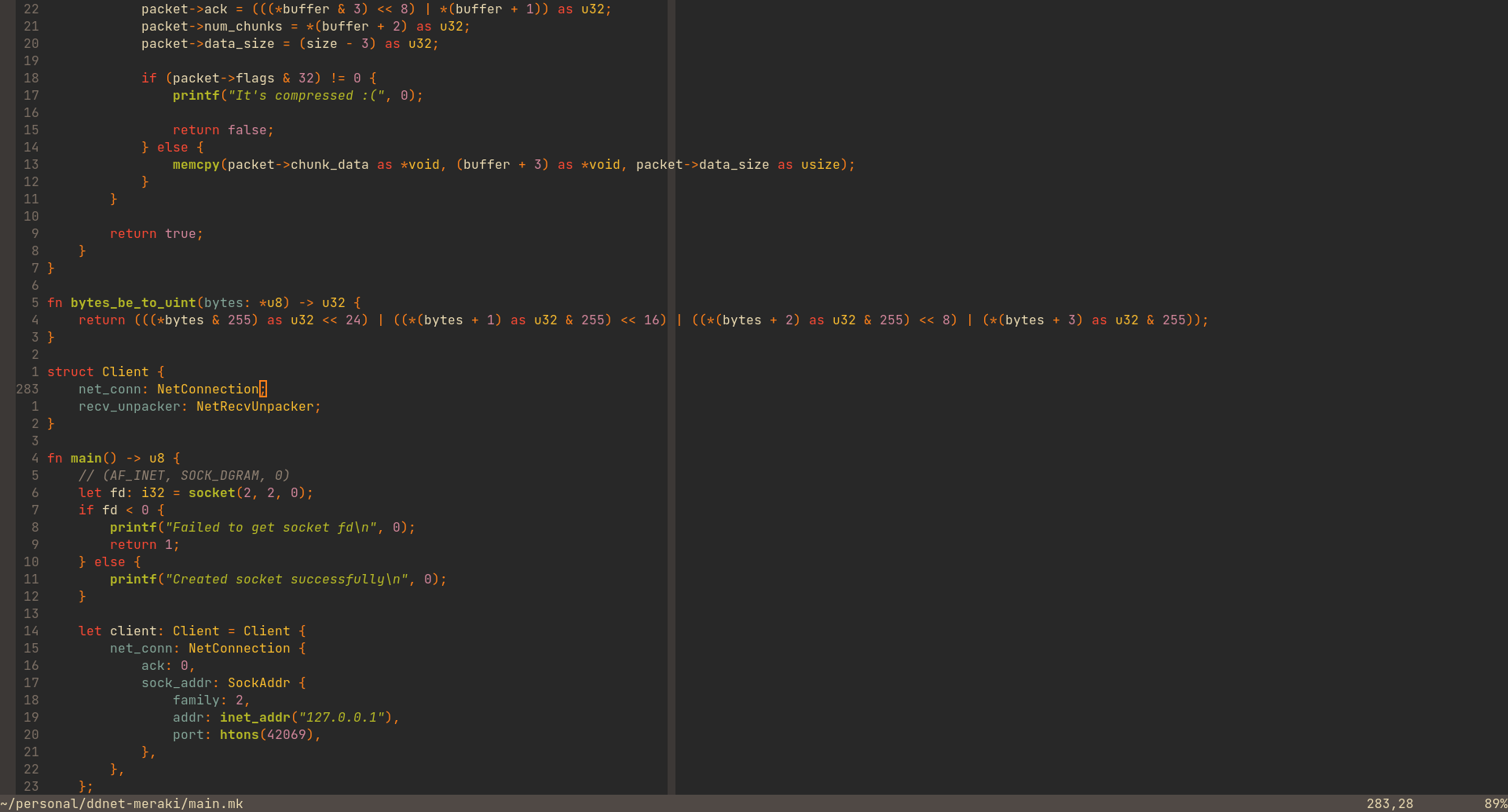Meraki, 3 months later
It’s been 3 months since I’ve written something here, and I’ve added a lot of new features to the language. In this time it transformed from being a fancy calculator to a real programming language, not a very good or robust one, but hey, nobody’s perfect.
Syntax changes
Language’s syntax was completely changed because it was impossible to parse after I decided let the user use structs/types which are declared after the place they are used in.
To better understand the problem, here’s a question: What is a?
a) A type which is declared after main function
b) A global variable declared after main function
c) 69
int main() {
a * c;
}
Welp, there was no a correct answer, this code can be interpereted in 2 ways:
either it’s a multiplication expression between a and b or declaration
of variable c with type a*. The easiest way to solve this problem is to
change the language’s syntax. I like the look and feels of rust’s, so I yoinked
it, and voíla, new syntax:
fn main() -> u32 {
let c: *a;
// you can see the different between the two, right?
a * c;
}
Functions
fn bar() -> u8; // You can also make function declarations
fn foo(arg: *usize) -> u32 {
return 69;
}
fn main() -> u8 {
let num: usize = 10;
let bar: u32 = foo(&num);
return bar as u8;
}
That looks like Rust with pointers instead of borrows.
Structs
struct Bar {
value: u8;
}
struct Foo {
bar: Bar;
fn gimme_bar() -> *Bar {
return &this->bar;
}
}
fn main() -> u8 {
let foo: Foo = Foo {
bar: Bar {
value: 42
}
};
let bar_ptr: *Bar = foo.gimme_bar();
return bar_ptr->value;
}
My idea with structs was take them as they are in C and add methods to them.
Currently there’re only non static methods, which means they have access to
instance of the struct using this keyword, Im planning to also add support for
static methods which can be used for creating instances of structs for example.
Tree-sitter grammar
To make my life easier I also wrote a tree-sitter grammar for the language which
is available here. After
randomly pasting prec.left/right to resolve parsing issues I have a syntax
highlightning for the code:

Assembly skill issue story
It was my first time trying to make somewhat real program in the language, I wrote a few functions and everything was working perfectly, but then for some god unknown reason the program was crashing with such a message:
[1] 174626 floating point exception ./a.out
After few minutes of removing random lines. I found the line which was causing
the creash, there was such an expression 10 + 30 / 15 - 20. It doesn’t look
like a problem at all I thought to myself. I took a look at assembly version
of this code:
...
mov rax, 30
mov rdx, 15
cqo
idiv rdx
...
After 20 mins staring at this I realized that when cqo
instruction is called, rax will be sign-extended to RDX:RAX. So it was
basically set to 0, and that’s why it was crashing :\ Lesson learnt.